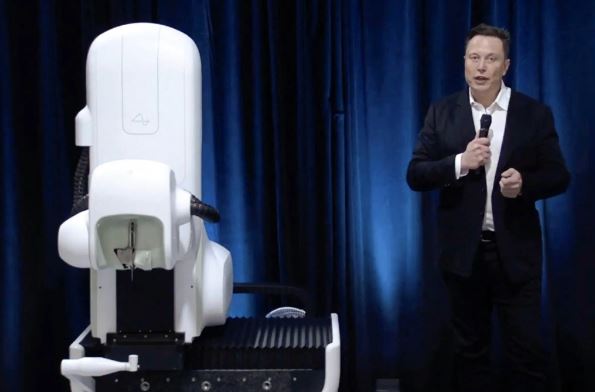Neuralink, the brainchild of entrepreneur Elon Musk, achieved a significant milestone by implanting its first device in a patient on Sunday, marking a pivotal moment in the company’s quest to develop advanced computer interfaces that can be integrated into the human brain.
Elon Musk, renowned for his leadership roles at Tesla and SpaceX, took to his social media platform, X, on Monday to announce the groundbreaking development. He revealed that Neuralink’s inaugural product, named Telepathy, empowers individuals to control electronic devices such as phones or computers through mere thought processes.
In a series of posts, Musk highlighted the transformative potential of Telepathy, emphasizing its initial application in assisting individuals who have lost the use of their limbs. He pondered the prospect of luminaries like Stephen Hawking communicating at speeds surpassing even the swiftness of proficient typists or auctioneers.
However, neither Musk nor Neuralink divulged specific details regarding the recipient of the implant or its functionality. Despite inquiries, Musk remained unavailable for immediate comment.
Neuralink’s progress has been closely watched since November 2022 when Musk forecasted human trials within six months. During this time, Neuralink showcased a demonstration featuring two monkeys controlling computer cursors using their brains, a feat previously achieved in human subjects over a decade and a half ago.
While Musk’s ambitious timelines for his ventures have occasionally fallen short, Neuralink received regulatory approval from the Food and Drug Administration (FDA) to initiate human trials as early as May of the preceding year.
As per Neuralink’s current website, the company’s inaugural clinical trial is actively seeking participants with limited or no hand function due to either a cervical spinal cord injury or amyotrophic lateral sclerosis (ALS), a progressive neurodegenerative disorder.
The trial involves the insertion of a discreet implant into the brain region responsible for planning movements. This implant, undetectable to the naked eye, is designed to interpret neural signals, enabling individuals to interact with electronic devices simply through their intention to move, without necessitating any physical gestures.
During Neuralink’s presentation in late 2022, Musk articulated grand ambitions for the company’s technology, envisioning its potential to restore vision to the blind or furnish individuals with severed spinal cords with comprehensive mobility. However, such claims were met with skepticism from experts who underscored the current limitations of scientific advancements in these domains.
Nevertheless, Neuralink’s strides represent a remarkable convergence of neuroscience and technology, offering glimpses into a future where human-computer interaction transcends traditional interfaces. As the company advances, its innovations hold promise for revolutionizing the lives of individuals with disabilities and reshaping the landscape of human-machine symbiosis.

